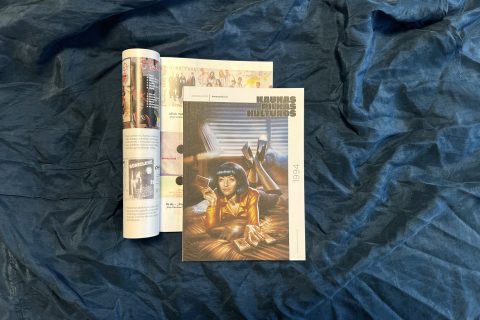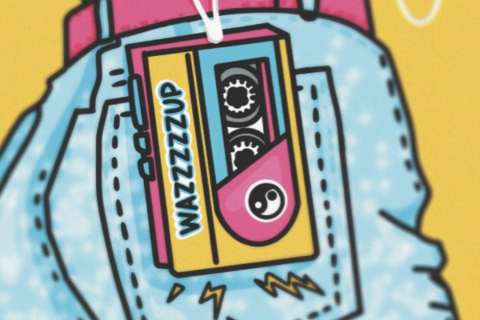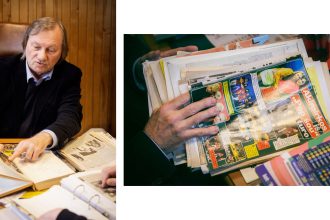I have to insert a warning here. While reading the text you might get an uncontrollable urge to open up music platforms, or maybe even find a cassette player collecting dust somewhere deep in the closet and embark on a nostalgic journey accompanied by the soft and melodic sound created by the first Lithuanian R&B band L+. The bold move to offer new sounds to the Lithuanian music scene was successful – many of the band’s songs became an inseparable part of the nineties, with many humming along and passing that heritage on to the next generation.
L+ was formed in 1997 by Linas Adomaitis – a violinist, singer, producer, composer, and teacher – now well-known to all music fans. Our questions reached Linas during his vacation in the Canary Islands, and his answers quickly transported us to the Kaunas of the 90s: that dynamic time full of possibilities.
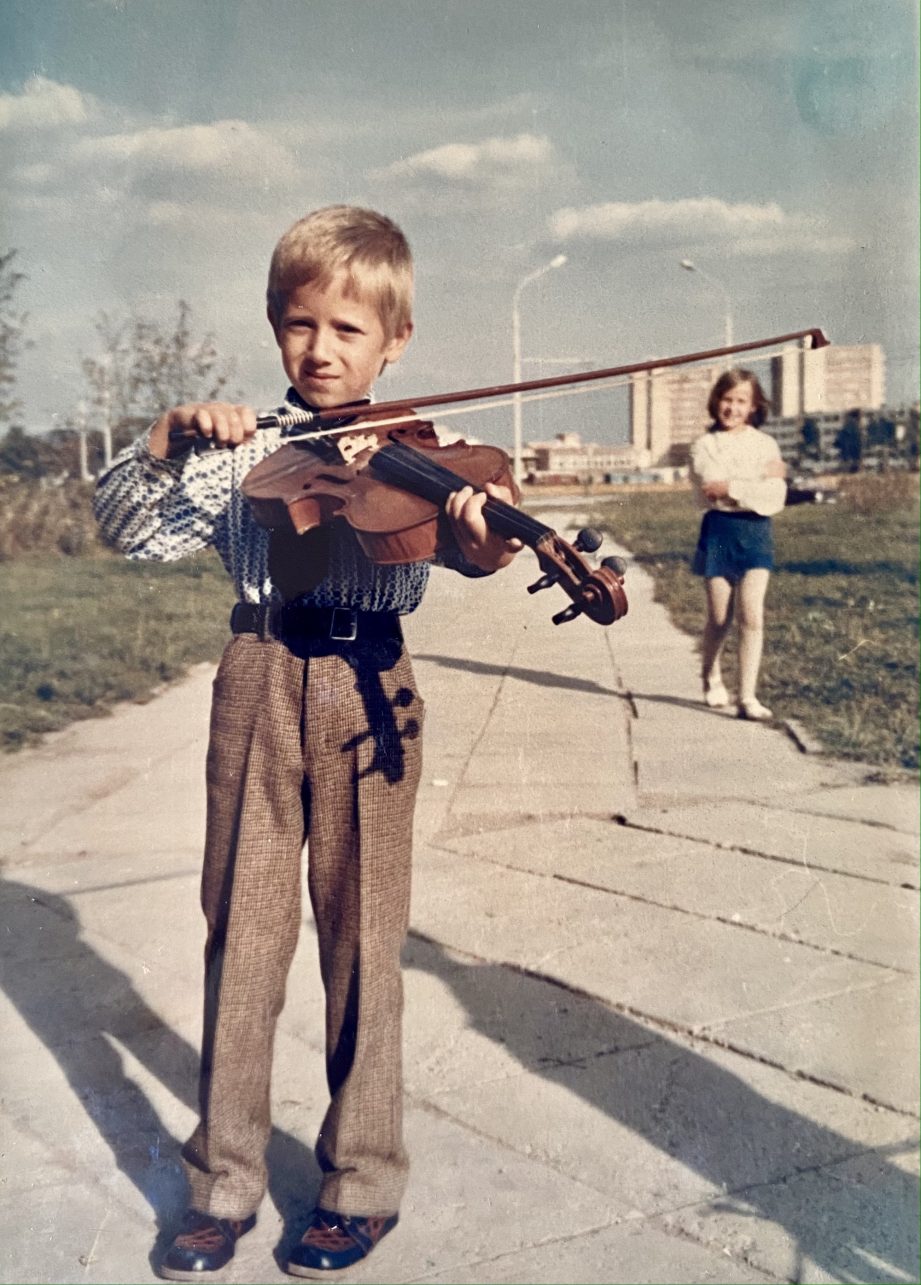
Linas, how did you decide to enter the world of popular music?
When I was graduating from J. Naujalis Music Gymnasium and planning on entering the Lithuanian Academy of Music and Theater, I was already interested in popular music, working in a recording studio and music programming. Of course, the violin was always my first love and it so remained, but understanding the prospects and sensing my future activities, I dove into complete opposite of classical music. I’ll admit, my knowledge of the violin and classical music served me well in pop music. I realized that popular culture could also be professional, even though a number of teachers at the time demonized anything that wasn’t classical. To this day, I am convinced that this view is short-sighted. As in the classical genre of music, so in the alternative genres there are those who are brilliant, and those who are mediocre. I chose a new, risky path then, but most importantly, I did it by listening to my heart, rather than to dogmas about “good and bad” music. Meanwhile, Lithuania was already independent, and we had a favorable environment for exploring new genres and professions. One such profession was sound directing, where I found myself while studying at the Lithuanian Academy of Music and Theatre. I was also lucky to study this art at the Tampere Conservatory in Finland and today, I teach music production and the basics of sound formation at Kaunas University of Technology.
It is so interesting to hear about the world of pop music from the second half of the 90s in Kaunas and Lithuania. This was the time when you formed the band L+ and started your solo career.
Oh, there are plenty of memories! Back when my friends and I formed L+, there were a lot of what we referred to as “go-go bands” that performed their music to a complete phonogram with some rehearsed synchronized dance moves. You know, back then, those dance moves really worked. People waved their hands energetically at the concerts. We did not find this format attractive. We decided to take a risk and create the first R&B band in Lithuania. We decided to just sing, without the go-go injection. At the very beginning, we encountered the skepticism of record companies and concert organizers. They all asked us the same question, “So you only plan on singing? So, there won’t be any go-go?” or even better were the comments like this, “Your music is too heavy, the audience won’t understand it.” Many doors were closed right in front of us in the beginning. But we did not give up and knocked on the door of Mega Records company, which decided to release our debut album Pasilik.
There was this legend going around that one of the most famous L+ songs „Ar tu ją matei?“ (Habe You Seen Her?) was created while watching a girl on Laisvės Avenue in 1996. I am curious to learn how you remember the Kaunas of the time. What was the creative atmosphere like in the city? Was it easy to create and share your work?
That story about the girl on Laisvės Avenue may or may not be true, but what is certain is that we managed to talk Ugnė Andrikonytė – a model of exceptional beauty – to be in the music video for „Ar tu ją matei?“ (you can find it on YouTube). It is also true that this song was not a steppingstone, but a huge trampoline in our career. This song was played everywhere in those days. And I use the word “everywhere” responsibly. It was phenomenal – radio stations broadcast “Ar tu ją matei?” several times a day, it was used in commercials of huge brands, and became a final song for Mis Lithuania and other beauty contests; and Žalgiris basketball club used it to celebrate the victory of EuroCup Basketball.
I spent a lot of time in the recording studio or traveling from gig to gig. I didn’t notice everything. However, I really saw and felt how the city progressed and changed. Kaunas had an intense musical life. Many performers from all over Lithuania used to come to Lapės, where the legendary Gediminas Zujus and Giedrius Litvinas worked, or to the recording studio of Aras Žvirblis, where I also worked at the time. I was producing day and night. When I was asked who I work with, I said that it’s easier to list the people I don’t work with. I created and produced music not only for L+ but for many other Lithuanian bands and solo artists and worked intensively in TV and radio advertising. Since success came along, the creative process also flowed. I have the best memories from that time.
Did Kaunas seem safe to you at that time? What dangers and opportunities awaited a young artist starting his musical career?
If you ask about safety in general, I can say that all kinds of things were happening. Back then, the so-called gopniks were moving about, robbing people, and causing fights in nightclubs, but in the long run, they were banned from everywhere. They couldn’t get into many places because of the way they dressed and looked. Then they began to behave differently and change or were caught and jailed. The late Hokšila and I spoke about the situation of the time in our rather ironic song titled „Pasaulis gražus“. And in terms of the music scene, there were fewer bands than now, so, in my opinion, it was easier to have a breakthrough. If, of course, the artists offered the listeners something interesting. I think that a similar situation existed in all of Lithuania, not only in Kaunas. After all, it was the beginning of the popular music culture.
In 1997, L+ received a Bravo award in the Debut of the Year category. This should have greatly accelerated publicity and, of course, the number of concerts. What kind of audience did you perform for the most? Did you go to private parties?
The Bravo Award was such a sweet victory for us. We were very happy with this rating, and I think it contributed to the band’s popularity even more. We drove from concert to concert. Sometimes two concerts a day. These were mostly town fairs, festivals, culture centers, and nightclubs. We also played at private events from time to time.
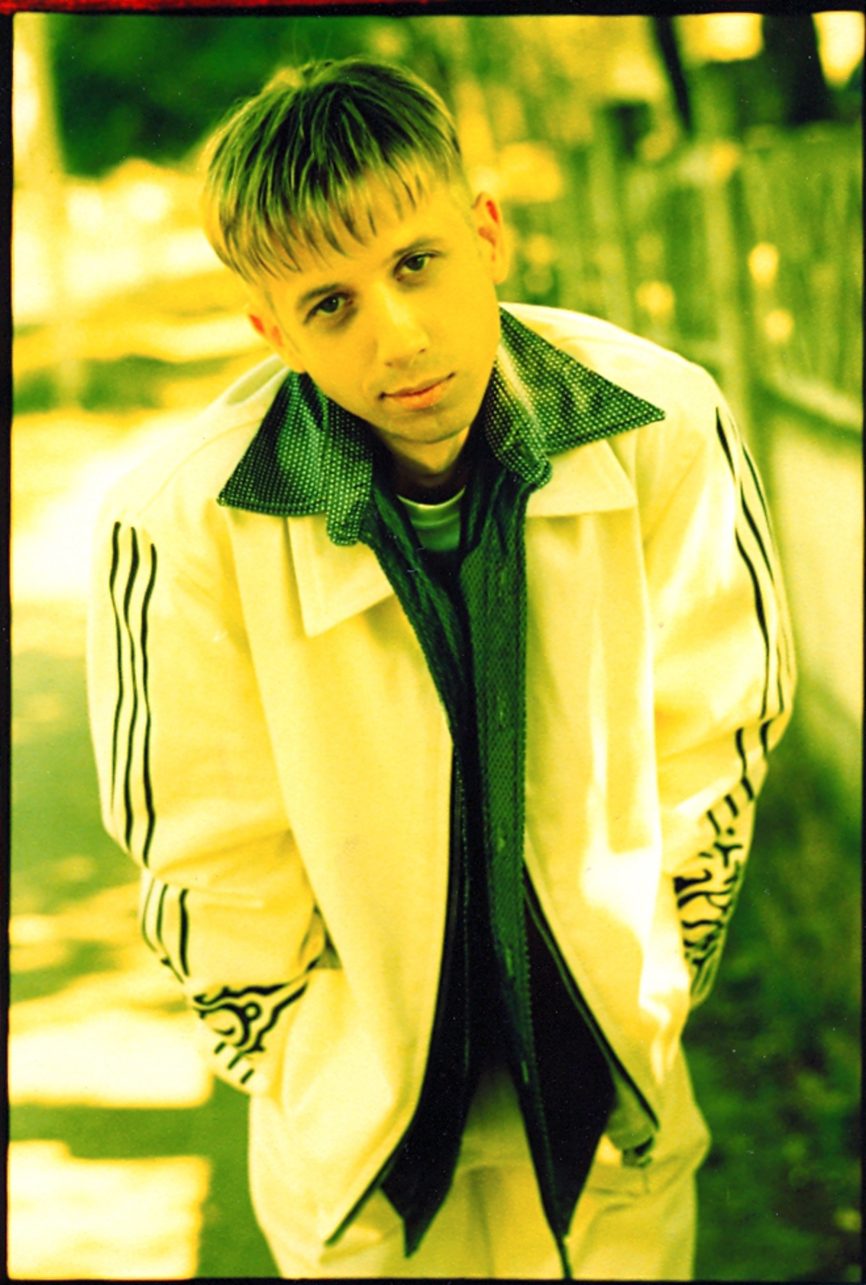
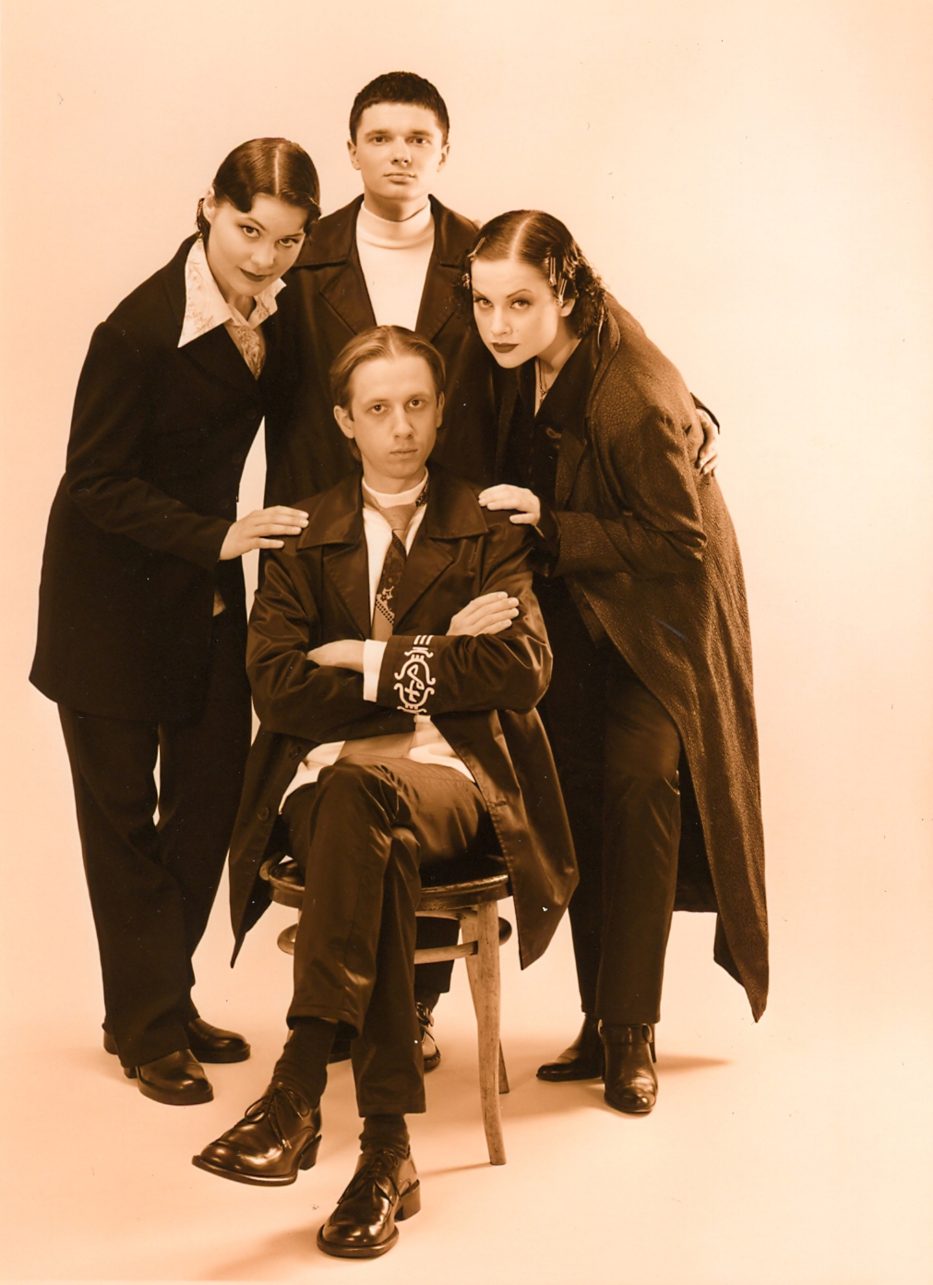
Talking about parties, I am curious to know where you partied yourselves. Did you have a favorite place in Kaunas?
I did not party anywhere because there was no time. Back then it was I who entertained the others [laughs]. I’ll admit that the number of events and decibels exceeded the norm, so it was best for me to recharge my batteries in nature, in silence, and peace. Maybe that’s why I got into traveling later because it was during the travels that I was able to move away from all the noise and a certain imbalance. Another important detail is that I returned to the music academy during that intense time. I had to pick up the violin again and start studying. I had enough parties on stage and all the other activities, like the work at the recording studio, concerts, and university were perhaps a bit too much. Still, I liked taking walks in Santaka in Kaunas. To this day, it is such a holy and sacred place for me, where the marriage of the two largest rivers of Lithuania is constantly taking place. The streets of the old town of Kaunas also evoke pleasant memories, after all, that’s where I spent my childhood.
When I think about the beginning of your career, I also remember the unique stage costumes: a white suit with black patterns. Who designed the clothes for you and the band?
Gitis and Kristina! That was the name of the duo of talented designers from Kaunas (you can find an interview with them in the August 2023 issue of Kaunas Full of Culture, ed.). First of all, Gitis asked to listen to our music. I gave him all the songs on the album, and after listening to them, he perfectly described the style they also followed when shaping our image. The white denim looked good and was comfortable to wear. According to the designers, those black patterns on the sleeves were a reference to Elvis Presley’s later work, R&B and soul music. Gitis and Kristina was a great choice. In my mind, they were simply the best in those days. It can be said that they shaped our image on the stage. L+ looked great, stylish, and respectful. And most importantly, we felt good on stage.
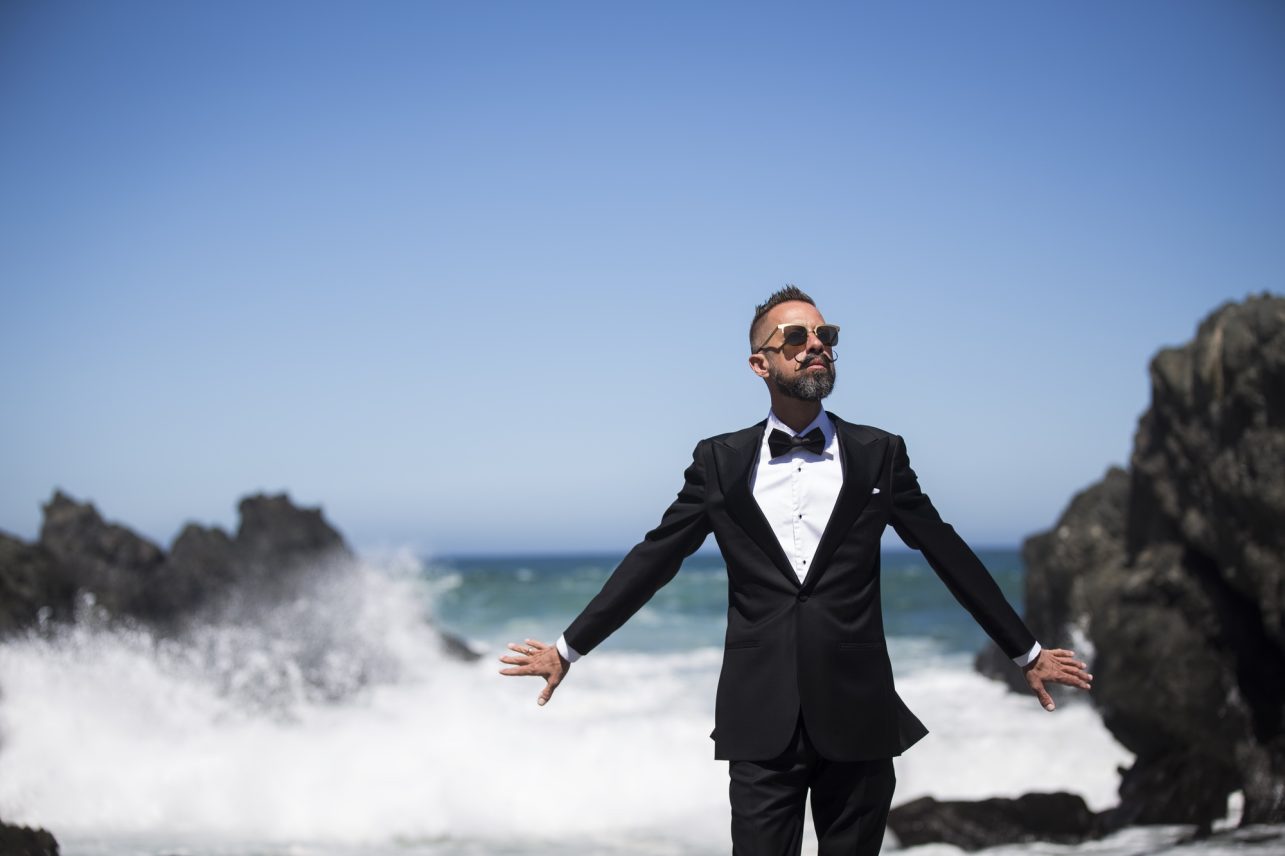
You have been in the music world for many years, and you have remained popular, stylish, and recognizable, although you did not follow trends and were not followed by scandals. How do you manage to stay relevant for almost three decades?
Well, if you say so, then thank you for the compliment and kind words. I only have to divide this message of thanks into many parts, which, like a mosaic, make up this picture, which has been in the making for almost thirty years. I do not invent formulas for success because many role models have already captured them. If I had to describe Linas Adomaitis in a few words, I would say that this guy loves his work and tries to act professionally and sincerely. And perhaps he also makes some good tunes.

